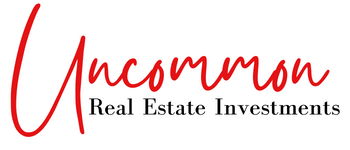In the competitive world of real estate investment, having a solid foundation and a clear strategy is crucial for success. Whether you’re a novice or a seasoned investor, the following checklist will serve as your roadmap to financial freedom through real estate investment. It’s designed to bulletproof your business and give you the confidence to write contracts and close deals, setting you miles ahead of your competition. These are your real estate commandments; follow them with intent, and you become an instant dealmaker.
1. Credit Score: The Foundation of Your Investment
- Good credit score: Aim for a minimum of 680 for approvable status, 700 for Fannie/Freddie approvals on 1-4 homes financed, and a mandatory 720 for financing home #5 and upwards.
2. Loan-to-Value (LTV) for Optimal Rates
- Best rates requirement: Ensure your LTV is at 75% or less of the appraised value or purchase price for up to 4 homes financed. For the best rates on 2-4 family units, target a 70% LTV or less.
3. Cashing Out on Investment Properties
- Strategic cash out: Understand the guidelines for cashing out, especially the timing post-purchase and improvements beyond superficial updates.
4. Minimum Loan Sizes for Investment Financing
- Navigating small loans: Be mindful of the difficulties with loans under $50,000 and aim for a final loan amount that meets or exceeds this threshold to avoid financing challenges.
5. Down Payment Insights for Deal Makers
- Zero down possibilities: Discover how to leverage good deals with at least 30% equity of the After-Repair-Value (ARV) for 100% financing through Hard Money lenders.
6. Documentation for Investment Financing
- Comprehensive documentation: Prepare all necessary financial documents, improvement proofs, and insurance information to streamline the financing process.
7. Securing a 30-Year Fixed Loan
- Investment property loans: Learn the conditions under which you can secure a 30-year fixed loan and the impact of purchasing under your personal vs. business name.
8. Financing Multiple Properties
- Expansion strategy: Understand the limits on the number of properties you can finance and strategies for managing more than 10 properties through equity partnerships.
9. Property Seasoning Requirements
- Navigating refinancing: Familiarize yourself with seasoning periods for refinancing and selling, ensuring alignment with lender guidelines for non-seasoned loans.
10. Down Payment Seasoning
- Funding your investment: Ensure your down payment funds are properly seasoned in a personal account, and explore acceptable sources for your down payment.
11. Reserve Requirements: The #1 Deal Killer
- Building a safety net: Know the reserve requirements for your investment properties to ensure loan approval, considering reserves as a crucial component of your investment strategy.
12. Leverage Leases for More Approvals
- Rental income: Learn how to properly document and leverage lease agreements to improve your debt-to-income ratio for investment financing.
13. Closing in Personal vs. Business Name
- Strategic ownership: Understand the advantages of closing in your personal name for long-term financing and the role of asset protection strategies post-closing.
14. Rapid Acquisition: A Cautionary Tale
- Growth management: Recognize the risks of acquiring properties too rapidly and strategies for presenting a low-risk profile to lenders.
15. Ideal Loan-to-Value Ratios
- Buying right: Aim for optimal LTV ratios to ensure wiggle room for repairs and to enhance the appeal of your deals to hard money lenders and private investors.
16. Refinancing Listed Properties
- Strategic listing: Understand the implications of listing a property for sale on your ability to refinance, especially with looming hard money loan maturities.
17. Seller-Paid Closing Costs
- Negotiation strategies: Learn when and how much to request in seller-paid closing costs without jeopardizing your deal.
18. Managing Negative Cash Flow
- Investment planning: Identify scenarios where negative cash flow might not impact your deal and strategies for mitigating financial risks.
19. Rent Loss Insurance
- Protecting your income: Consider adding rent loss insurance to your policy for additional protection during tenant-related repairs.
20. Flipping Financing
- Lender relationships: Be mindful of the implications of flipping financing too quickly and strategies for maintaining good standing with your lenders.
21. Renovation/Rehab Financing
- Project funding: Learn the requirements for securing renovation financing, emphasizing the importance of equity and a solid analysis of your projects.
